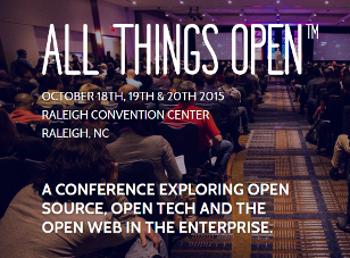Ken Starks put another well deserved feather in his cap on Saturday when he accepted an award for Reglue from the Free Software Foundation (FSF) at the LibrePlanet conference in Cambridge, Massachusetts. Reglue was announced as this year’s winner of the Project of Social Benefit Award by FSF executive director John Sullivan, who also announced that Sébastien Jodogne had won this year’s award for Advancement of Free Software. The event took place on the MIT campus.
For those of you who are new to the FOSS community, Ken Starks founded the nonprofit Reglue, then known as the HeliOS Project, in 2005 to put refurbished computers in the hands of school aged children whose families couldn’t otherwise afford them. In the ten years since its inception, Reglue has placed over 1,100 computers with children living in the Austin, Texas area, and has been both a model and inspiration for other organizations with similar goals across the country.
Christine Hall has been a journalist since 1971. In 2001, she began writing a weekly consumer computer column and started covering Linux and FOSS in 2002 after making the switch to GNU/Linux. Follow her on Twitter: @BrideOfLinux



 After being a two day event for its first two years, this year the event, which is staged by the Columbia, South Carolina based nonprofit IT-oLogy, will expand to take place over a three day period. In addition, the event is moving from midweek to the beginning of the week, and is scheduled to begin on Sunday, October 18th and run through Tuesday, October 20th.
After being a two day event for its first two years, this year the event, which is staged by the Columbia, South Carolina based nonprofit IT-oLogy, will expand to take place over a three day period. In addition, the event is moving from midweek to the beginning of the week, and is scheduled to begin on Sunday, October 18th and run through Tuesday, October 20th.


 One of the commenters was thoughtful enough to even include a bash script that made working with the text to speech application Festival much easier. I’m putting the script here for anyone that wants to use it. It works great and I was able to make it work easily.
One of the commenters was thoughtful enough to even include a bash script that made working with the text to speech application Festival much easier. I’m putting the script here for anyone that wants to use it. It works great and I was able to make it work easily.
 So on May 15, some lucky Bodhi contributor — key word here is “Bodhi contributor” — will receive “a gently used Acer C720 Chromebook powered by Bodhi Linux.”
So on May 15, some lucky Bodhi contributor — key word here is “Bodhi contributor” — will receive “a gently used Acer C720 Chromebook powered by Bodhi Linux.” 
 Well, much of the focus for the week was on the Federal Communications Commission vote on increased net neutrality protections, and according to rational news sources reporting on the issue (e.g., just about everyone but Fox News and their wannabes), this is a good thing.
Well, much of the focus for the week was on the Federal Communications Commission vote on increased net neutrality protections, and according to rational news sources reporting on the issue (e.g., just about everyone but Fox News and their wannabes), this is a good thing.